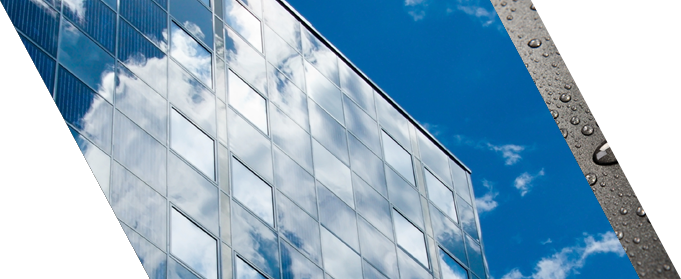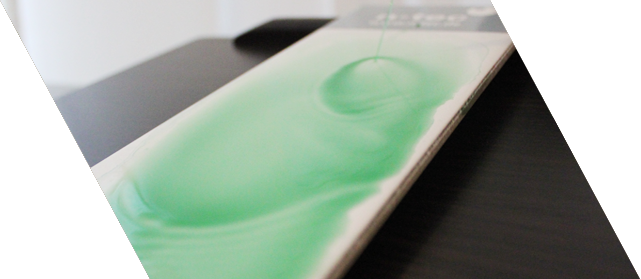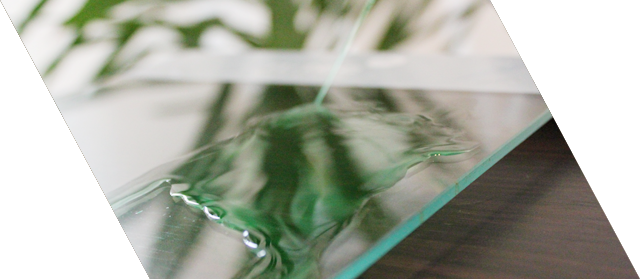self clean
photokatalytic – superhydrophilic
The principle
- TiO2-Nanoparticles (Anatas) in an inorganic matrix
- Stable boundaries in substrates and coatings
Product characteristics
- Very good adhesion to ceramics, glass, metal, extremely high chemical resistance to solvents and acids
- Water-based, clear to milky
- Odourless to almost odourless
- Highly transparent surfaces through nanoscaled , inorganic components
- Glass-type abrasion resistance
- Inexpensive application technology (e.g. through spraying, tipping, slot-die coaters. flood coats, wet paint processing)
Effects
- Photo catalytic active titanium nanoparticles of the Anatas type, integrated in a photo catalytic non- degradable matrix
- Activated by natural UV radiation
- Superhydrophil surfaces < 8° for water
- Self cleaning effects through elimination of organic pollution
- Methylene blue < 30 minutes (for example, in the case of ceramics)
- Rhodamin B – Activity: 4 hrs. approx. 74,4%, after 24 hrs. 84%
- NOx – elimination in 4 hrs. approx. 93%, after 24 hrs approx. 100%
- Elimination of odours – proven by an ammonia test
- Standardised: anti-microbial and anti-bacterial effect
Further possible uses
- Particularly surfaces exposed to weathering (for example, facades) but also humid rooms, vehicle construction, machine construction, medical surfaces, pharmaceutical packaging etc.
This technology is protected by n-tec® patents
bionic – super hydrophobic
The principle
- Based on minimizing free surface energy through chemical nanotechnology
- Self organizing anti-adhesive groups on nano-structured surfaces
Product characteristics
- Suitable for almost all smooth external surfaces (metal, glass, stone and plastic surfaces)
- Simple application (for example, by means of spraying and thermal drying, wet lacquer processing)
- Translucent on the substrates: metal, ceramics, glass, stone
- Transparent on plastic surfaces
- Very good adhesion to the substrate without complex pre-treatment
- Low surface energy: < 24 mN/m²
- Contact angle clearly over 120° for water (super hydrophobic)
- Self cleaning effect in watering of the nano-structured low energy surfaces
Effects
- Almost completely repels water
- Coated pollutants are washed away by (rain) water
Areas of application
- General: weather-exposed external areas, rain cleans the surface, high mechanical stresses, fats and oils damage the effect on account of overlaying the structure
- Easy-to-clean and anti-adhesive characteristics remain intact in spite of overlaying
- Building protection, construction industry: sell cleaning facades made of concrete, plastic and metal elements, windows, doors and gates
- Winter gardens, plexiglas roofs, pergolas
- Solar plant, wind energy rotor blades, casings, satellite dishes
If required all systems will be adapted to the process on site



